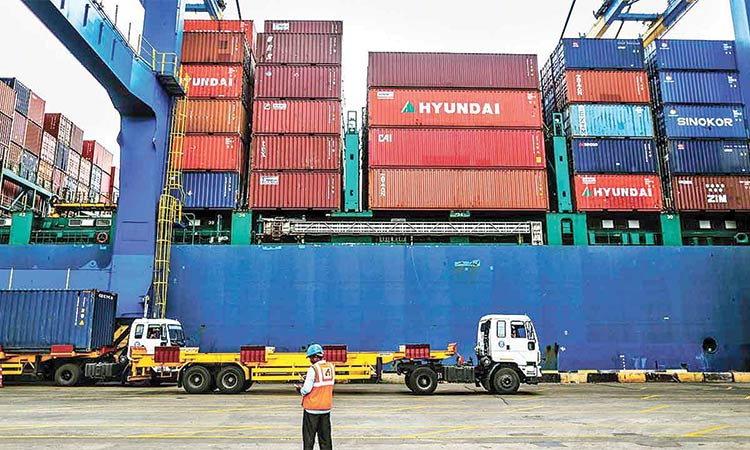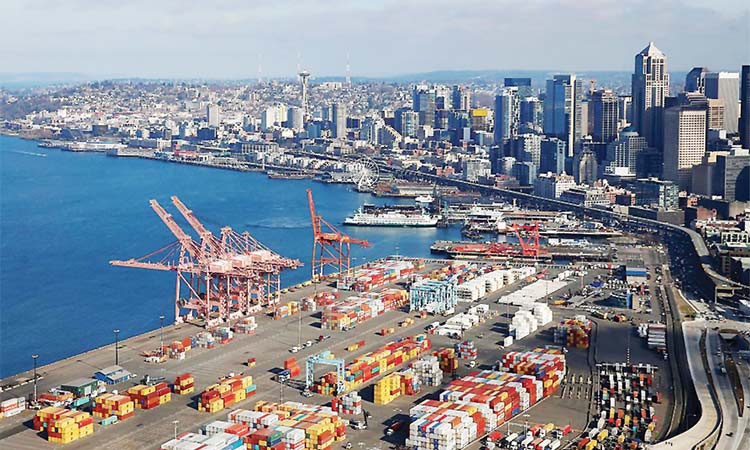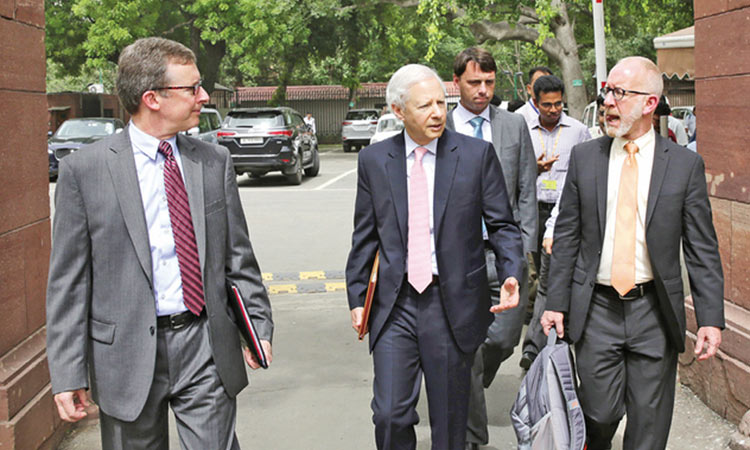Sino-US trade woes unlikely to aid Indian exports: Fitch

India’s imports of steel, capital goods and polymer from China could potentially increase as Chinese exports to the United States start losing traction.
The ongoing trade war could lead to China dumping goods at predatory prices in emerging markets, including India, and potentially disrupting the domestic demand-supply dynamics in the country, the agencies said.
Products such as electronic goods, iron, steel and organic chemicals would be most affected, analysts at the two agencies wrote.
India Ratings and Research is a 100% subsidiary of the Fitch Group.
Two of the world’s largest economies are locked in an increasingly acrimonious trade dispute that has seen them level escalating tariffs on each other’s imports in the middle of negotiations, adding to fears about risks to global growth and knocking financial markets.
“A fall in Chinese exports to the US could potentially put downward pressures on the Chinese yuan. A likely devaluation of the yuan could stimulate a competitive depreciation in the Indian rupee, failing which the competitiveness of Indian exports could be affected,” they said.
The rupee has lost just about 0.3% so far in 2019 as the currency had gained on the back of large foreign portfolio inflows earlier in the year. A stronger rupee, however, would prove to be a concern for exporters.
India’s imports of steel, capital goods and polymer from China could potentially increase as Chinese exports to the United States start losing traction.
India Ratings expects demand-supply dynamics in these sectors to get skewed unfavourably over the medium term.
“Nonetheless, the impact is difficult to quantify at this point in time and will be contingent on the Chinese production/capacity utilisation levels, global demand-supply scenario and a host of other evolving factors.”
The United States must show sincerity if it is to hold meaningful trade talks, China said on Friday, after US President Donald Trump dramatically raised the stakes with a potentially devastating blow to Chinese tech giant Huawei.
China’s central bank said on Friday it will help reduce financial costs for small enterprises as part of a wider effort to help companies weather a slowdown in the world’s second largest economy due to a trade row with the United States. The People’s Bank of China (PBOC), the central bank, said in its first-quarter implementation report that it would also maintain a prudent monetary policy and fend off any systemic financial risks.
Copper prices headed for their fifth consecutive weekly decline on Friday as the United States and China intensified their confrontation over trade.
Investors fear the trade dispute will damage economic growth and weaken the outlook for metals demand. Industrial metals prices are down sharply from last summer when the confrontation began.
Benchmark copper on the London Metal Exchange (LME) did not trade in official rings but was bid down 0.9% at $6,043 a tonne.
The metal used in power and construction has lost around 1.4% this week and is trading near Monday’s 3-1/2 month low of $6,007.50.
Separately, Indian shadow banks with more than 50 billion rupees ($714 million) in assets must appoint a chief risk officer, the central bank said on Thursday, as it tightens regulations after a series of defaults by a single lender last year.
“With the increasing role of NBFCs (non-banking financial companies) in direct credit intermediation, there is a need for NBFCs to augment risk management practices,” the Reserve Bank of India (RBI) said in a statement.
NBFCs must now appoint an independently functioning chief risk officer with clearly specified responsibilities for a fixed tenure, and who cannot be removed without board approval, the central bank said. It did not give a deadline for firms to comply with the regulation.
Last year, the government took control of Infrastructure Leasing & Financial Services after its defaults triggered fears about contagion in India’s financial sector.
A series of ratings downgrades of shadow banking companies in India in the last two months has stoked further fears of credit risk and increasing defaults by firms in the sector.
Last month, rating firm ICRA downgraded some of Reliance Home Finance and Reliance Commercial Finance’s short-term debt.
Dewan Housing Finance’s (DHFL) debt was also downgraded this year and PNB Housing Finance was put on credit watch by another rating agency CARE. Concerns about the sector means raising funds through commercial paper is becoming expensive and difficult.
The shadow banking sector, which raises short-term funds through commercial paper, and lends for long-term purposes such as housing loans, may face an uphill task to redeem up to 1 trillion rupees that come due in the next 3-4 months, according to analysts.
Agencies







